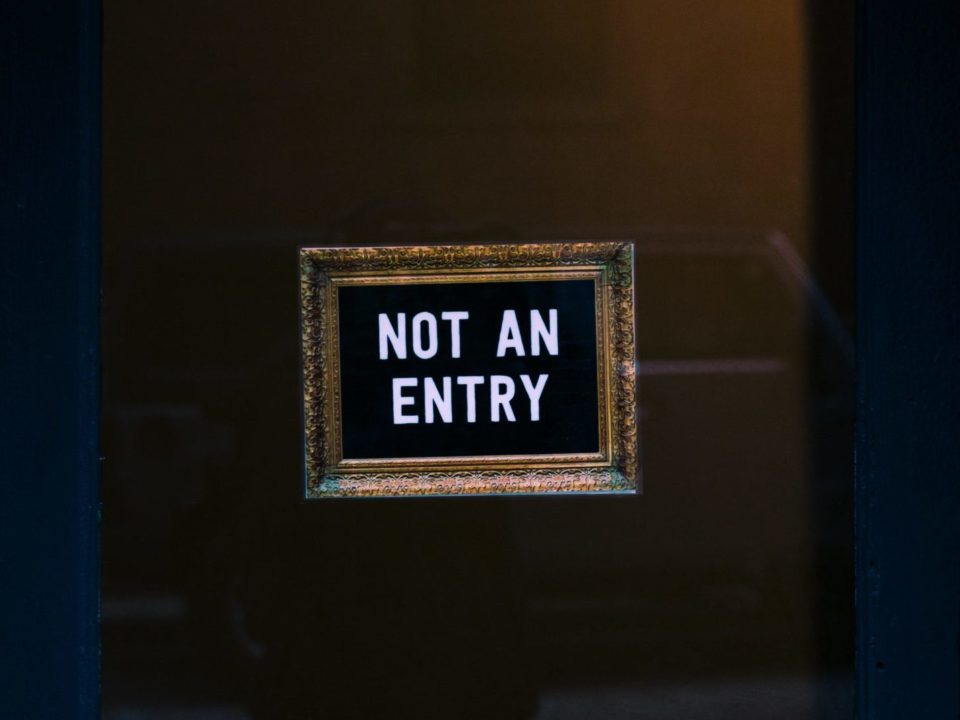Grieving Non-Death Losses
Last year I attended a conference where the topic of a panel was the significance of grief connected to non-death losses. The researchers focused their sites on college campuses and found that many students were ranking break-ups, friendship changes, divorces and stress over poor grades as more painful than deaths they had experienced.
This study was fascinating. Not only were these students connecting grief specifically to a non-death loss,
they were saying that they were more significant than their prior experiences with death.
Grief accompanies many, many experiences and nearly every change we encounter. We may experience grief when we order our favorite meal and are told, “we’re out of that,” – I know it sounds trivial compared to the griefs we deal with at a mortuary – but there is still grief when things don’t go as expected.
We may experience grief …
– when a friend cancels plans at the last minute
– when someone close begins to change and pull away
– when we lose a job
– when we fail at something
– when we sell a beloved car
– when we move out of our childhood home
– when we finish a book
– when we get injured, inhibited, or sick
– when we turn a “certain” age
– when a season ends
– when we lose a community
– when we lose a dream
I remember realizing one morning that there are some days that feel like I’m living in a perpetual state of grief. In any one day most of us can find something that changed. We exist amidst emotional, physical, spiritual, and behavioral dynamics that are complex and in constant change.
Consider this:
1. Not all changes are bad, but the ones that bring up pain need to be recognized.
We may not recognize a grief at first and mislabel it as “just a bad mood”. We may get home after a day of changes and take our anger and regret out on our spouse or child. We may avoid these pains as much as we can, keep busy, never turn the tv off, or get swept up in comparing our lives to others so we can either feel better or worse. When we are distracting ourselves from “feeling” we are failing to recognize something important is going on and it deserves our FULL attention.
2. Give your griefs a voice, your own, unique voice.
Joann, a happy, successful, blogging mother of 2 had a stroke out of no where. 3 years after her stroke she wrote this blog addressing the grief she’s experienced over the life she has lost and the new life she faces.
There is power in her words, power in voicing her grief over a tragedy, a true and sudden life-change, unexpected and unwanted. Power in the admission: I am sad, I am in pain, life didn’t go the way it’s promised.
3. How much time should we spend time acknowledging these griefs?
As much time as you feel they need. Some may only need a few minutes before you can move on and have the pistachio ice cream instead of the cookie dough you wanted. Still others might take significantly longer and as time passes, it’s important to not lose sight of the origin of your grief. The thing about grief is that it’s messy and IT changes, too. Looking at how your grief changes over time helps you gauge where you’re at in the processing, how you’re doing, and how much attention you’re paying to yourself.
4. Don’t confuse “moving on” with “progress” and don’t make “progress” your sole priority.
Live in the change, see the grief, feel it and do what you need to about it. DON’T IGNORE IT.
Giving these changes in your life permission to be painful is important in helping you realize the significance of the change. We live in a society obsessed with “moving on” – not a bad notion, but potentially harmful, disrespectful, and full of emptiness if we don’t take time to pause before the void of what used to be.
“We delight in the beauty of the butterfly, but rarely admit the changes it has gone through to achieve that beauty.”
— Maya Angelou





8 Comments
Another great post, Molly. This topic really speaks to me as I truly believe there are some non-death losses that are even more profound for a person. You’ve covered the topic well and made helpful suggestions for managing them. Thanks!
Thank you for another interesting and important blog. I think of people I know who are going through challenging and frightening health issues right now and realize that they are grieving the very really loss of their health and the uncertainty of what the future holds. My favorite pieces of advice you give are “Don’t ignore it” and and making sure not to confuse “moving on” with “profess”. Thank you for your thought-provoking blog; I really enjoyed it.
Molly, this came at a perfect time for me. I’m going thru some major changes at the moment & I’m finding that I’m grieving some parts of them. I know that these changes are good but change is scary for me. I find that the anticipation of change is the most frightening part. I have anxiety about what is about to happen but I’m sure that once I’m on the other side of the changes, I’ll look back & understand why they were necessary, even beneficial. Thank you so much for putting things into perspective for me! Love, Carrie
Molly,
Your timing for this post could not be more perfect. I am currently in the midst of grieving, not so much the loss of a friendship, but a significant change in one. (Perhaps the pulling away you referenced in your post) It is really hard to not talk to people you used to talk to every day.
I think you and I are similar in that there is part of us that needs to really FEEL and EXPERIENCE our sadness for a period of time.
I am definitely taking your advice and not ignoring the grief. Maturity for me is that I am not only focusing on the grief. The old me would get very comfortable living in a state of sadness for too long. Today, while sad moments creep in, I count my blessings. There are many good people who I am blessed to call friends and today I choose to be grateful instead of filled with sorrow.
Love when posts are timed perfectly such as this one!
Lori
Molly,
Thank you for your blog. It is a good reminder that all of us are facing loss at all kinds of different times in all kinds of different ways. I especially liked the quote for Maya Angelou about rarely admitting the change we have to go through to be more beautiful. Mark